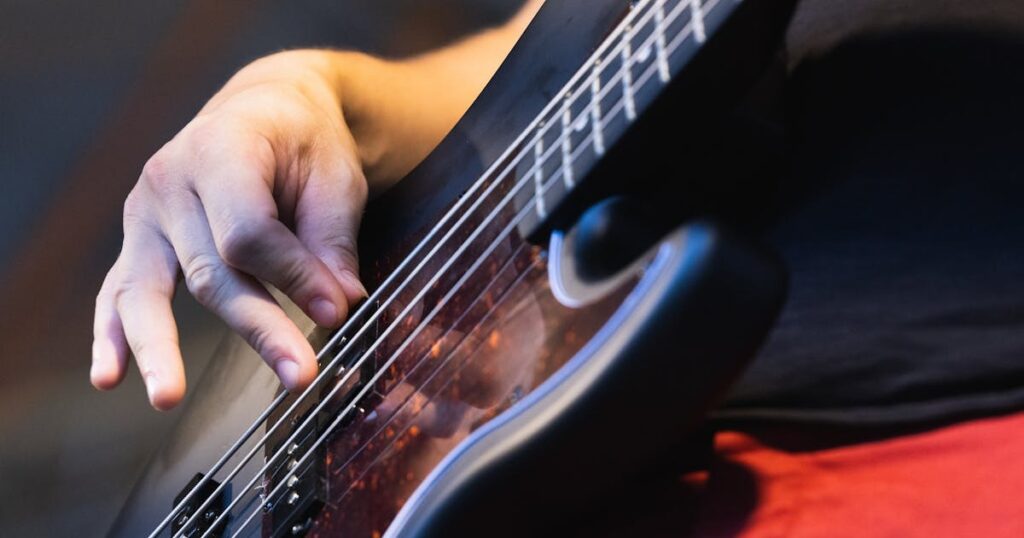Key takeaway: The best strings for acoustic guitars can greatly enhance your playing experience. Understanding the unique characteristics of options like Elixir, D’Addario, Ernie Ball, and Martin will help you select strings that suit your style and enhance sound quality.
As a guitar player, finding the right strings for your acoustic guitar is crucial in achieving the best sound and playability. With so many options on the market, it can be overwhelming to choose the perfect set of strings. In this article, we will discuss five of the best strings for acoustic guitars that have been tried and tested by musicians all over the world.
Elixir Nanoweb 80/20
The Elixir Nanoweb 80/20 strings are known for their long-lasting durability and their bright tone. These strings are coated with a thin layer of polymer that protects them from dirt, sweat, and oils from your fingers, keeping them clean and fresh for a longer period. This makes them an ideal choice for those who want to avoid frequent string changes.

The 80/20 composition of the strings (80% copper and 20% zinc) gives them a bright tone, making them perfect for strumming and fingerstyle playing. They also have a balanced feel across all frequencies, from bass to treble, making them suitable for various music genres such as country, folk, and pop.
D’Addario EJ16 Acoustic
D’Addario is a well-known brand in the guitar world, and their EJ16 acoustic strings are highly praised by many musicians. These strings are made with Phosphor Bronze, which gives them a warm and rich tone. The 12% tin content in the strings also adds to their bright and responsive sound.
One of the unique features of these strings is their “high-carbon steel core,” which enhances their durability and strength, making them less prone to breakage. They are also coated with a corrosion-resistant layer that helps them maintain their tone for a longer period.
Ernie Ball Earthwood
Ernie Ball is another popular brand among guitar players, and their Earthwood strings are loved by many for their versatility and affordability. These strings have a brass-plated steel winding wrapped around a tin-plated hex-shaped steel core, giving them balanced and bright tones.
The Earthwood strings are also known for their excellent sustain, which is perfect for playing solos and leads. They are available in a wide range of gauges, making them suitable for different playing styles. With their affordable price point and reliable quality, they are a popular choice among beginners and professionals alike.
Martin Retro
Martin is one of the oldest guitar companies in the world, known for their high-quality instruments. Their Retro strings are no exception, with many musicians raving about their warm tone and playability. These strings are made with Monel, a nickel-copper alloy that gives them a vintage sound reminiscent of the 1930s.
One unique feature of these strings is their silk wrap, which adds a soft touch and reduces finger noise while playing. They are also coated with a thin layer of bronze that helps preserve their tone for longer periods. With their rich and mellow sound, Martin Retro strings are perfect for blues, jazz, and other genres that require a warm and smooth tone.
Elixir 12-string
For those who like to play on 12-string guitars, the Elixir 12-string strings are an excellent choice. These strings have a similar composition to the Nanoweb 80/20s but with an added octave string for each note. This results in a full-bodied, resonant sound that is perfect for strumming and creating a lush sound.

The Nanoweb coating on these strings also helps them last longer, even with the extra tension from the additional octave strings. They are known for their balanced tone across all 12 strings, making them an ideal choice for any genre that requires a fuller sound.
FAQs
What is the difference between coated and uncoated strings?
Coated strings have a thin layer of polymer or other material that protects them from dirt and oils, making them last longer. Uncoated strings do not have this protective layer but may offer a more traditional sound.
How often should I change my guitar strings?
It depends on your playing frequency and how much sweat and oil your fingers produce. On average, it is recommended to change your strings every 3-4 months for optimal sound and playability.
What is the best gauge for acoustic guitar strings?
The best gauge depends on your playing style and personal preference. Lighter gauges (0.010 – 0.053) are easier to play, while heavier gauges (0.012 – 0.056) may offer a fuller and more robust sound.
Conclusion: Best Strings for Acoustic Guitars
Finding the right strings for your acoustic guitar can greatly enhance your playing experience and improve the overall sound of your instrument. The five strings discussed in this article are among the best options on the market, with their unique features catering to different playing styles and preferences.
As always, it is essential to try different strings and see which ones work best for you and your guitar.
